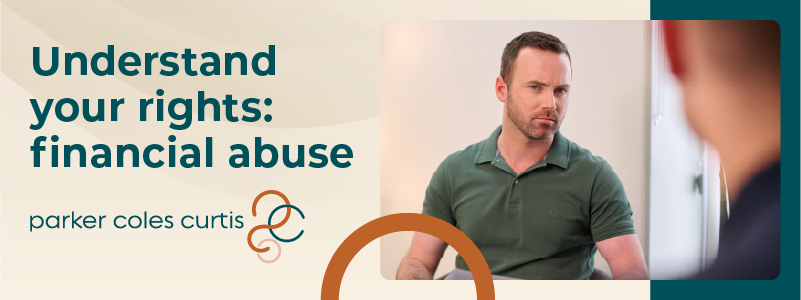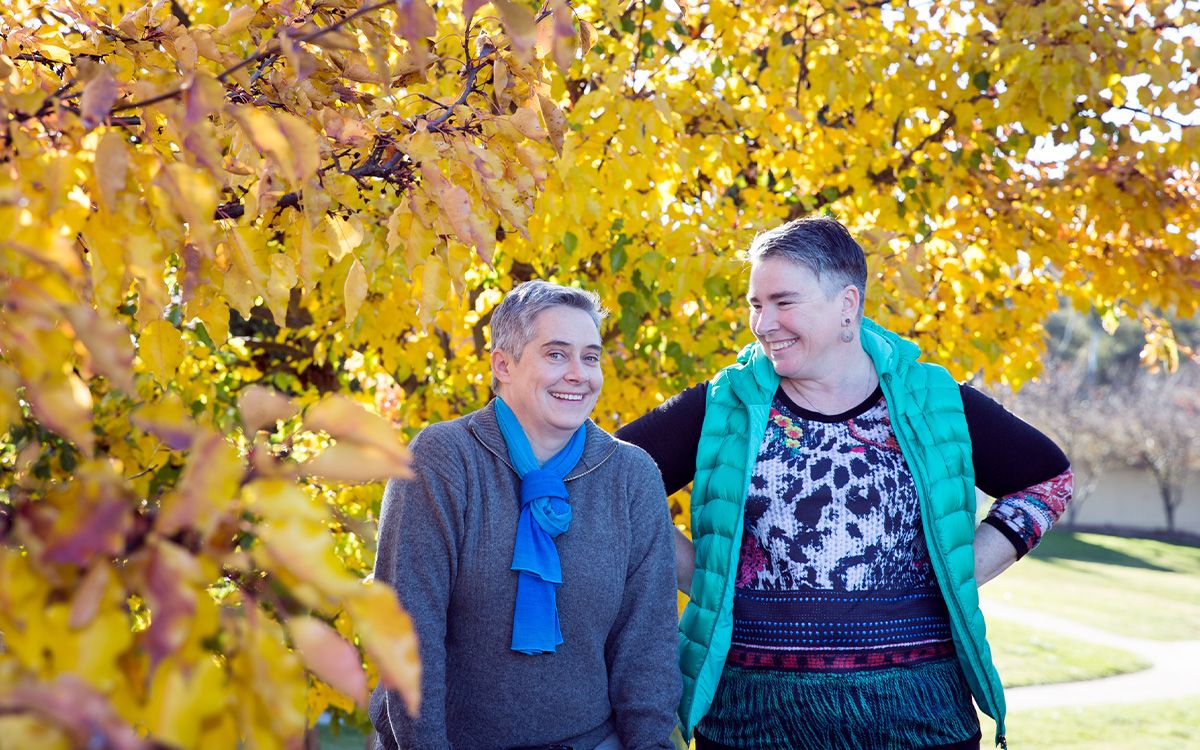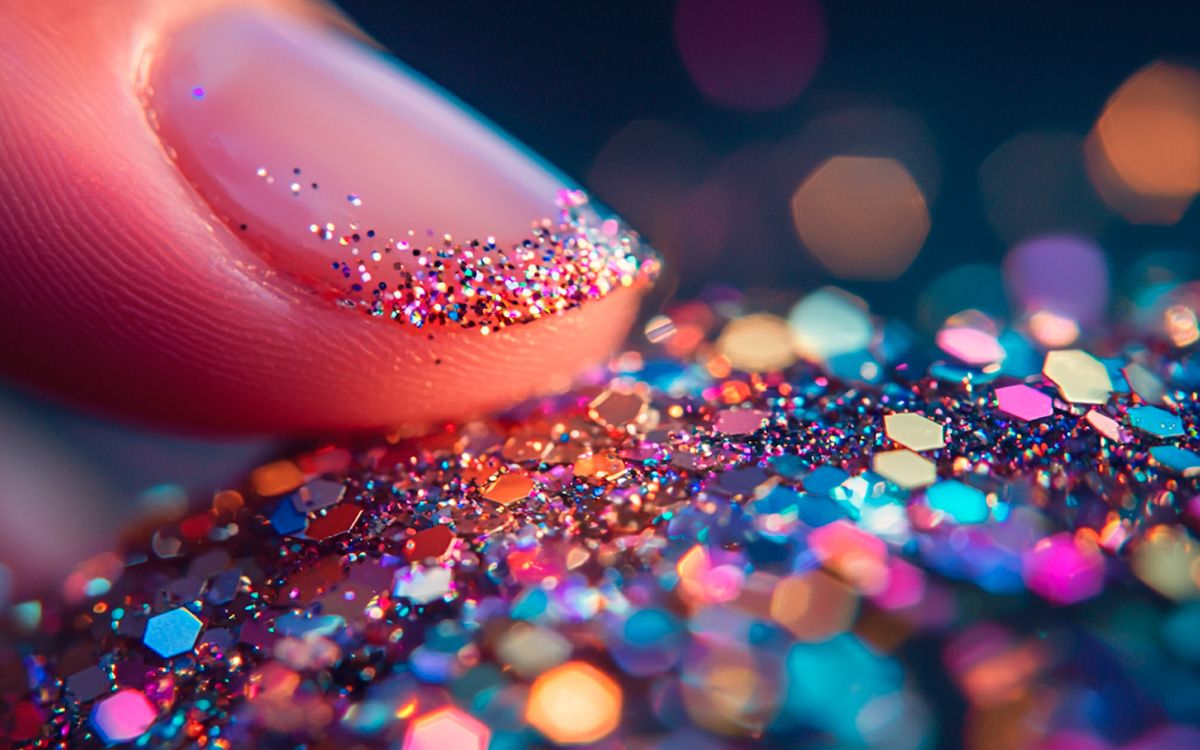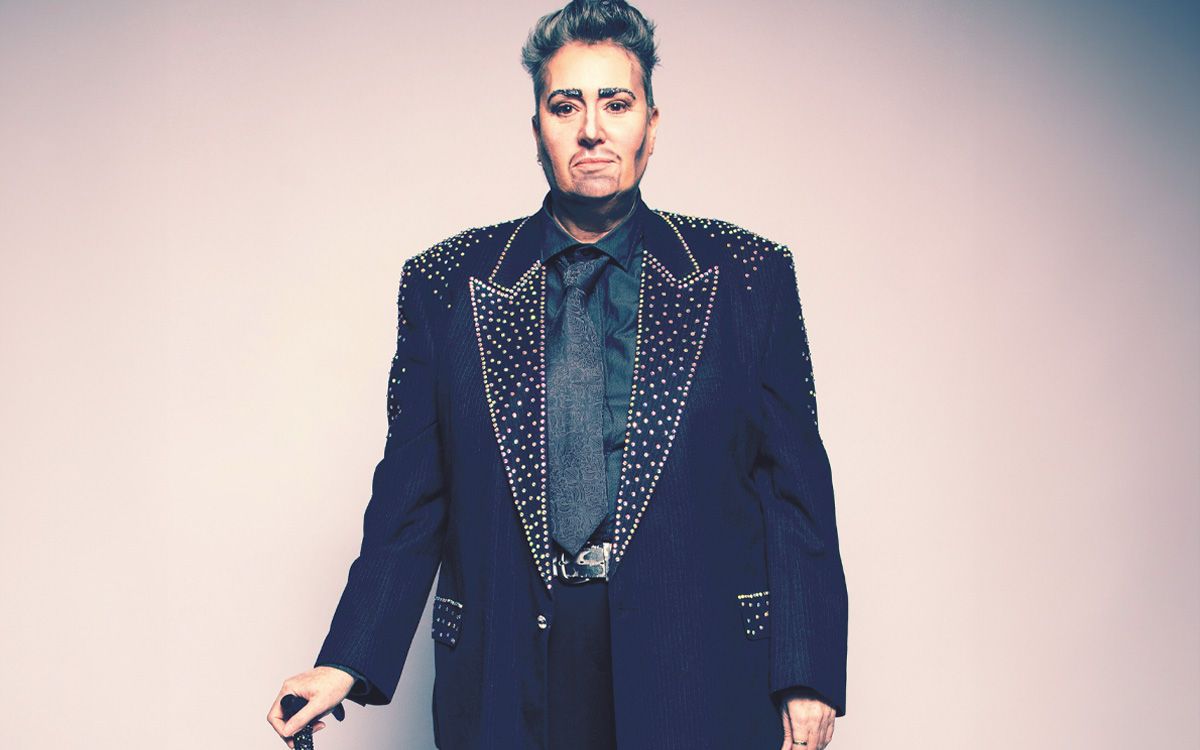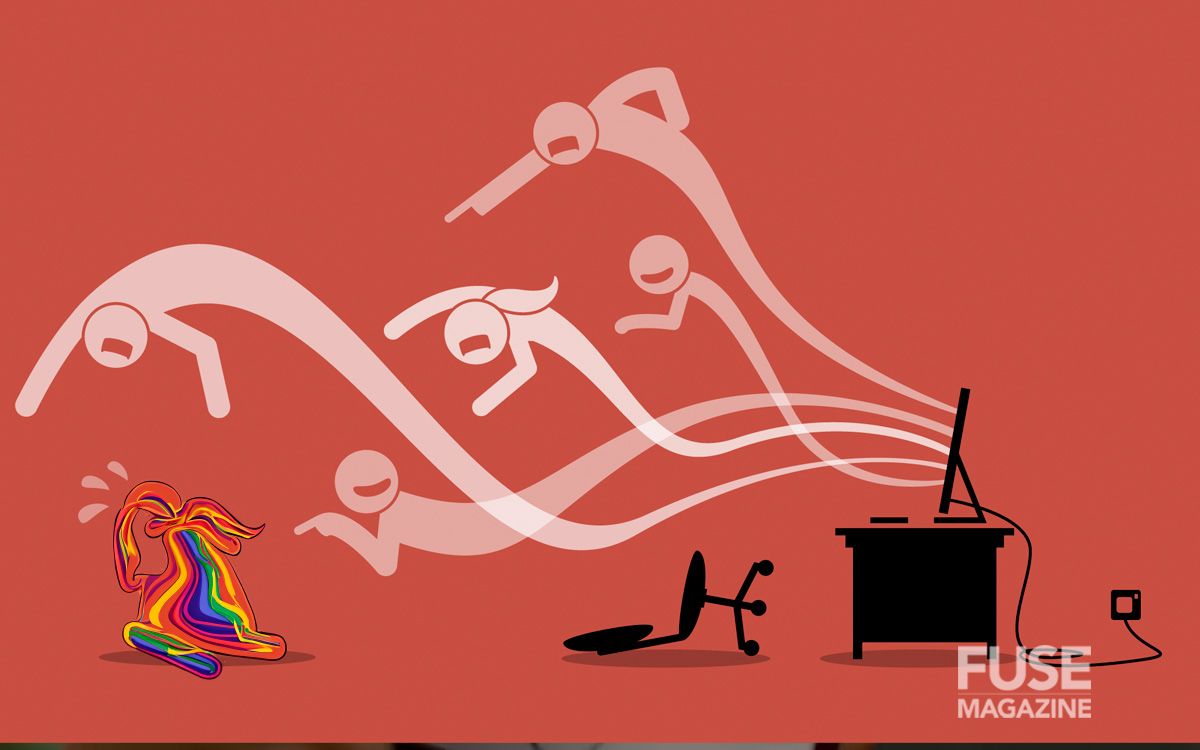Unstoppable advocate who’s redefining disability and queer identity

When you first meet Wayne Herbert, he’ll probably tell you he’s an extraordinarily fortunate guy who is a chronic over-sharer with average stand-up comic skills that happens to have travelled the world.
Of course, Wayne is so much more than that. He is incredibly articulate, bright, funny and has a heart of gold. He is an outspoken and talented public speaker, a successful author, and a fierce advocate for the rights of and opportunities for people with disabilities and the LGBTIQ+ community.
You may have also seen Wayne grace the TEDx talk stage where, back in 2017, he illuminated discussions about disability, sexuality, identity, and just to shake things up a bit, the importance of regular masturbation. All this has led to his very own unique style of ‘Wayne’s world domination’.
Wayne is currently the Director of Progress and Property at LEAD Disability Services, and serves as deputy chairperson on the board of LGBTIQ+ Health Australia. He has also worked with various federal government agencies, served for several years on the board of Meridan including as vice president, was deputy chairperson of the ACT Government’s LGBTIQ+ Ministerial Advisory Council, and held positions on the ACT Disability Reference Group. It’s a lot, I know.
Despite any challenges, Wayne has certainly not let his disability or anything else hold him back.
Following his hugely successful book Anecdotes of a Disabled Gay, Wayne recently released his second book, In Our Words, which he co-wrote with Yenn Purkis.
We had a chat about his book and life as he knows it.
Before we start talking about your new book, I was wondering if you could tell readers what life is like for Wayne Herbert.
It’s good! I’m lucky enough to lead a great life with the support and love of family, close friends and of course all my fabulous ‘sisters’. I’m also travelling around a lot right now and meeting so many new people, which is amazing. I never imagined I would find myself here... or maybe I did.
What inspired you to write your second book?
I was thinking about how bad entrenched ableism* has become everywhere in the world, and I am often concerned by the public discussion about people with disability in our community. It’s like we are on a never-ending race to the bottom; well, guess what? I’m not! I am hopeful the book will find its way into the hearts and minds of readers.
For me, the book is the queer disabled version of The Vagina Monologues. I wanted to write the book as I became increasingly tired of this conversation where others often describe people with disabilities, according to data and research, as weak and marginalised.
Lived and positive experiences are often left out of the conversation, which I feel our new book showcases. Despite the many obstacles, queer people with disability are so much more than just vulnerable.
What do you think are the biggest hurdles that young people with disability face?
I think it is mostly ableism and the continued experiences of discrimination. Young people with disabilities are also often underestimated and have enormous challenges despite commitments to inclusivity.
The book has a wonderful compilation of queer and disabled life stories. Do you have a favourite?
That’s a hard question. They are all wonderful. I remember reading drafts as they came in often feeling very emotional as I read them. I am so proud of this project. I feel honoured to share the project with some of my closest friends and leaders in my communities.
You co-wrote the book with Yenn Purkis; tell us a bit about why you decided to team up.
It was a chance meeting at a conference, a lunch discussion over the complexity of Gaga lyrics in particular, ‘... let’s have some fun this beat is sick’ and ‘... I want to take a ride on your disco stick’. I knew in this moment we would be friends. Being a queer peer, Yenn was a really important part of making the book successful.
Who should read your book, and what do you hope it achieves?
Everyone. Of course! The book takes readers on a captivating and sometimes challenging series of personal reflections. Readers will also get an insight into how fearless queer and disabled people can be in the face of some serious discrimination.
The book is ideal reading for everyone really, including students of disability studies, LGBTQIA+ studies, social work and gender studies, as well as queer disabled folk.
If you could go back in time, what advice would you give a younger you?
Trust me, it gets better. I can promise you that. Oh, and also, perms will make a comeback!
Ha! So now you’ve added ‘successful magazine cover model’ to your repertoire, what’s next for Wayne Herbert?
I am so excited to be on the cover! It’s been years in the making! I don’t think I can top this, or can I? I have many new projects in the works. But I am pretty keen on a breakfast radio gig! I mean who wouldn’t want to wake up with Wayne and my dulcet tones every morning?
* Ableism is a misguided and biased understanding of disability that leads to discrimination or prejudice against people who have disabilities. Ableism can take the form of ideas and assumptions, stereotypes, attitudes and practices, language and visual images, physical and environmental barriers, or larger scale oppression.
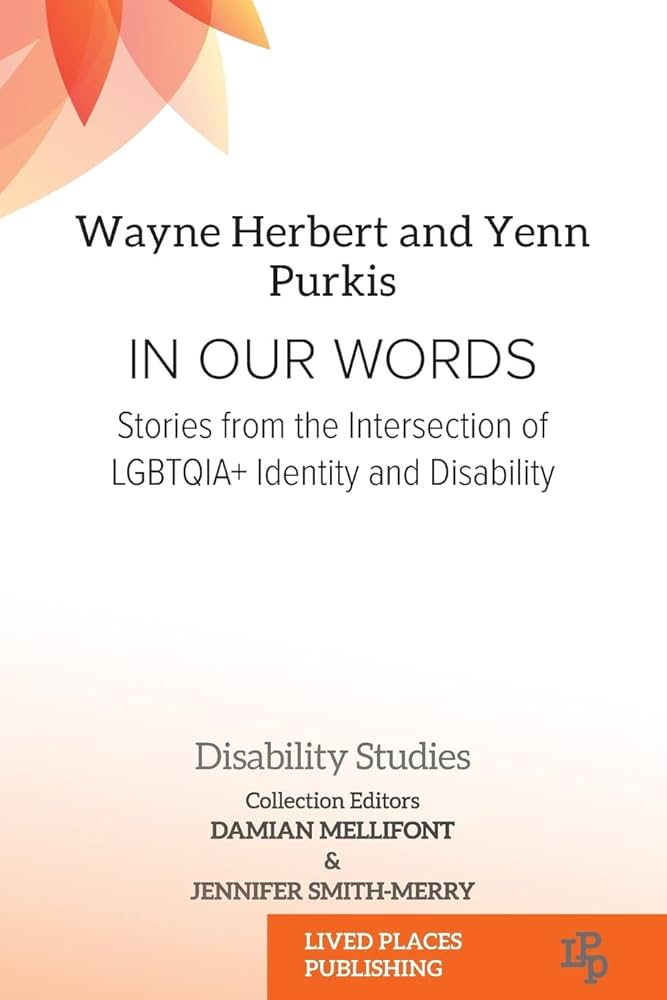
In Our Words: Stories from the Intersection of LGBTQIA+ Identity and Disability (Disability Studies) is published by Lived Places Publishing and is available to buy now.


